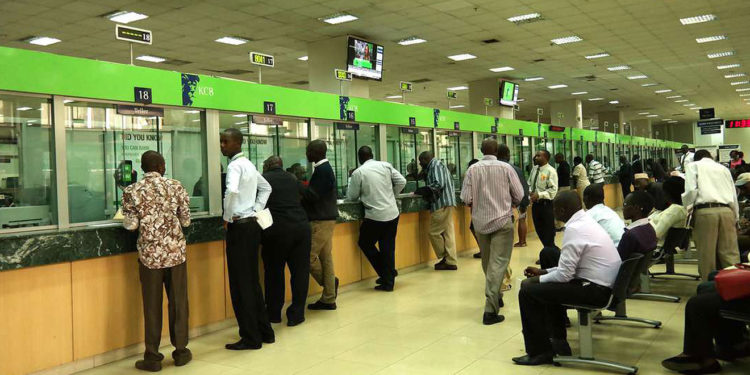The financial services landscape has been dramatically transformed by digital technology and fintech. Whereas just a few years ago, banks were playing “catch-up” with technology, today, banks, and financial institutions now offer a plethora of technology-based services.
Examples include online trading apps and financial planning tools that customers access via smartphones or social media.
What, exactly, does this mean for jobs and wages? Sometimes new technologies eliminate jobs overall, but sometimes they create demand for new capabilities and new jobs. In one case, the new machines replace workers overall; in the other, they just displace workers to different jobs that require new skills.
Bank branches are downsizing their staff, and bank teller services are becoming fully automated. You can withdraw and deposit funds without human intervention. Checks can be deposited with a modern ATM banking machine. Consumers are using their phones at the point of interaction with their bank.
Read more: Treasury bill sales struggle amid liquidity shortage
A spot-check today at some of the banks in the Nairobi Central Business District (CBD) will reveal less than 20 customers lining up to be served by two tellers inside a banking hall with six counters.
Once seen as the face of a bank’s operations , tellers were not only the embodiment of human touch but also representatives of quality service.
Because of the evolution of technology in the 21st Century and the Covid-19 pandemic forcing the world to go digital, the prestige of the profession has vanished in both vigour and numbers.
A World Economic Forum 2023 report dubbed The Future of Jobs shows that many clerical or secretarial roles are seen as likely to decline because of artificial intelligence, and the death of bank tellers is nigh.
The report listed some of the professions likely to decline in five years including bank tellers and related clerks, postal services clerks, cashiers and ticket clerks, data entry, and administrative and executive secretaries, among others.
The global bank kiosk market is projected to reach a size of $46.36 billion by 2030, with a Compound Annual Growth Rate (CAGR) of 14.7 percent from 2023 to 2030, according to research and markets.
Bank kiosks are self-service devices that offer consumers various financial services without human interaction. Some Kenyan banks have started adopting self-services and centres such as NCBA and Standard Chartered.
In an earlier interview, NCBA boss John Gachora told a local business publication that the quickest way to reach new regions in the country will still be through physical branches, even though the size and capabilities will be different.
NCBA is among lenders that have been introducing technologies such as open banking, cash deposit machines and online cheque deposit machines to encourage do-it-yourself services at the branches to resonate with increasingly tech-savvy customers.
Standard Chartered (StanChart) Bank of Kenya has also been rolling out sales and service centres and co-shared spaces as part of transforming the traditional branches into advisory centres.
Cooperative Bank, which in 2015 became the first lender to station mobile agents inside branches, says full self-service outlets cannot be ruled out going forward.
Read more: KRA deploys 1,400 trained tax enforcers to the streets in revenue crackdown
The bank kiosk industry has seen rapid growth in recent years and is expected to continue due to factors such as convenience, accessibility, and cost-efficiency.
Bank kiosks address the need for quick and easy financial services, financial inclusion, technological advancements, and customer demand for self-service banking.
Official data from the Central Bank of Kenya shows clerical workers rose from 14,341 in 2010 to a high of 18,539 in 2014 but started falling to 16,503 in 2016, 14,515 in 2016 to a low of 11,138 in 2020 when banks cut staff owing to the pandemic’s effect.
The number has risen to 16,894 last year from 14,294 in the year before. “The banking sector employment has seen a 20.1 percent growth over a decade with a 47.4 percent rise in managerial and supervisory staff noted and a subsequent 0.7 percent decline in clerical and support staff within the same 10-year period,” read a report on the Kenya Executive Pay report from the Standard Investment Bank.
Analysts explain the rise last year as a factor of both market dynamics and bank expansion to other towns and countries.
This year, NCBA plans to add 10 new branches, Diamond Trust Bank opened 17 new branches in 2022- six in Kenya and plans another 24 others in 2023 and acquisitions which require new staff.
KCB Group, the largest bank by assets, added 2,560 employees to its payroll last year following the acquisition of a controlling 85 percent stake in the Democratic Republic of Congo’s Trust Merchant Bank (TMB).
DRC’s entry will see KCB go head-to-head with Equity, which entered the vast market in 2015 through a buyout of ProCredit Bank and increased market share in 2020 after acquiring another lender — Banque Commerciale du Congo (BCDC).
Tobia Ocholla, a financial research analyst explains that advanced technology has moved more customers’ transactions online.
“This wave of financial technologies adds value to banks from the customers’ perspective, but it also puts pressure on the banks to work harder than ever to stay relevant in a fast-moving world,” notes Ocholla.


















